Why You Should Be Worried About The Chemicals In Your Hamburger
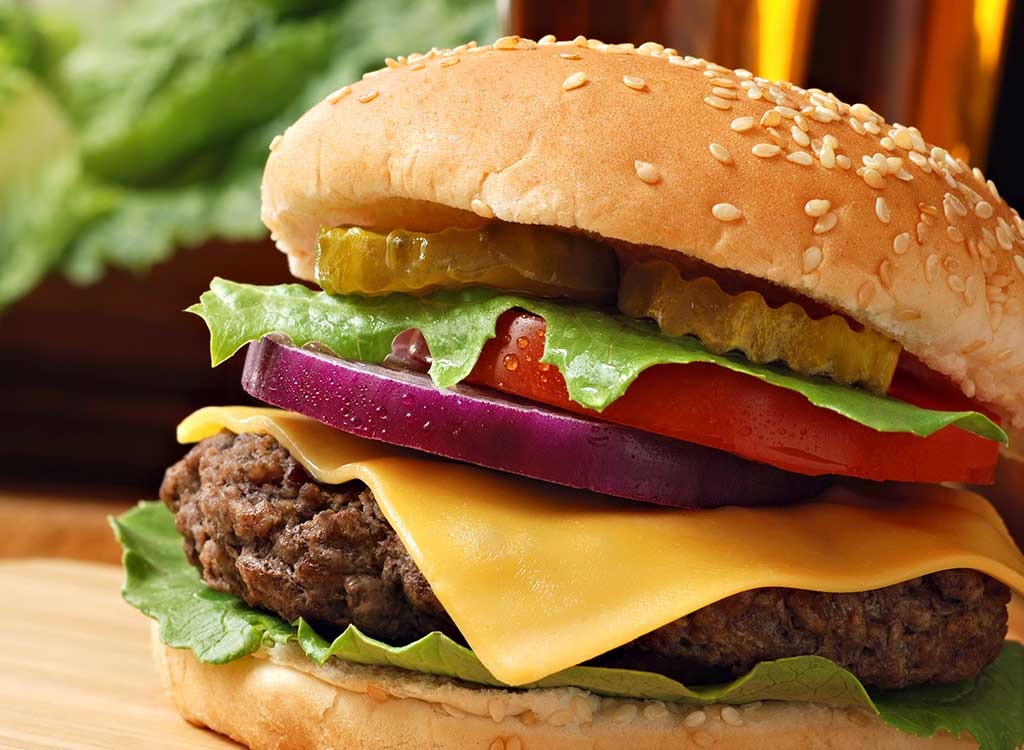
Ignorance may be bliss, but not when it comes to putting food in your body. Since it's estimated that all the hamburgers Americans eat in a year could wrap around the planet 32 times, anyone contributing to that number should pay attention to what exactly is in the meat they're consuming. So whether you're ordering off of the McDonald's menu or firing up the grill yourself, don't turn a blind eye to the chemicals hiding in this American staple. Educate yourself — and then check out our list of 40 Popular Burgers — Ranked! before you make bad burgers a bad habit.
On the Menu

If a stranger handed you a burger, you wouldn't accept it (we hope). You'd probably be too worried about where it came from or how fresh it was. But if the stranger was a fast food employee, you'd take it without a second thought. Have you ever stopped to think about why you trust so blindly in the quality of meat at these chains? Pause for a moment and consider what's actually in the Whoppers and Big Macs you've allowed into your body.
Trimmings

We all know that the beef in our fast food burgers comes from cows, but which part of those cows exactly? A study in Annals of Diagnostic Pathology tested hamburgers from eight different fast food places and found that some contained as little as two percent actual meat. The rest was made up of mostly water, with an unexpected side of blood vessels, nerves, fat, plant material, cartilage, and bone. They even found parasites in a couple. Good luck trying not to think about that the next time you order a burger.
Sodium Nitrite
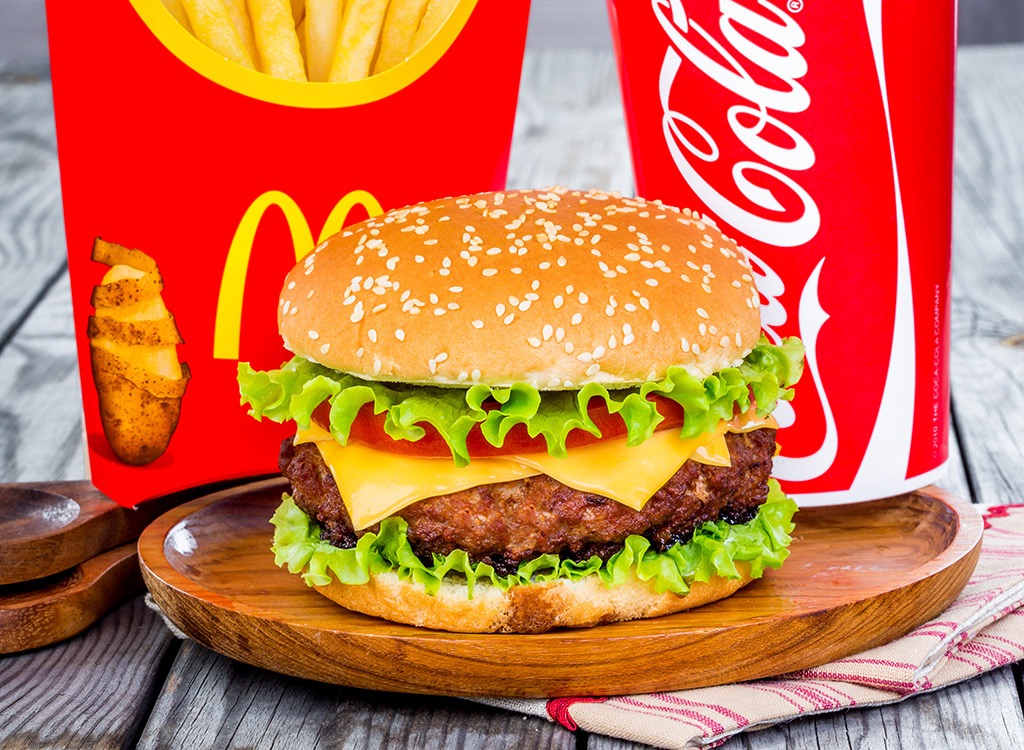
The last thing a restaurant wants is for the meat they serve you to look anything less than red and fresh, which is where sodium nitrite comes into play. This coloring agent gets the job done while also keeping meat from spoiling, but it's not without its consequences. Research by the Cancer Research Center of Hawaii and the University of Southern California found that the risk of pancreatic cancer was 67 percent higher for those consuming the most processed meats. With risks like that, you want to make sure you're eating the Best Burgers For Weight Loss at the very least.
Ammonia

Although fast food joints aren't using ammonia as much anymore, it used to be the way for chains to kill off pathogens found in their meat. McDonald's publicly discontinued ammonia use in 2011, and it's a good thing they did. According to a study on rats in Cancer Research, there is a connection between this chemical and colon cancer. But in 2014, one of the main suppliers of this ammonia-fed beef reopened a plant due to demand. Just who exactly is buying meat from them is unclear since no chains have admitted to it.
In the Store

While the chemicals lurking in fast food may not have come as a shock to you, you'll be surprised to know that grocery stores have secrets of their own. Don't assume that buying burgers in packages or straight from the deli is safer than from a restaurant. Market meat isn't as innocent as it seems.
Sodium Benzoate

Preservatives have their perks, but what else is sodium benzoate doing besides keeping your meat fresh? According to a study in The Lancet, this chemical can also be affecting your children's energy. Adding sodium nitrite to their diet can result in increased hyperactivity.
Sulfites

If you suffer from asthma, it's in your best interest to avoid sulfites. These preservatives are used in store-bought meats to maintain color and increase shelf life, but a study in Clinical and Experimental Allergy showed that they can trigger an attack in 3 to 10 percent of asthmatics. Since reactions to sulfites vary from uncomfortable to life-threatening, take a quick scan of the ingredients list next time you're prepping for a BBQ.
Carbon Monoxide
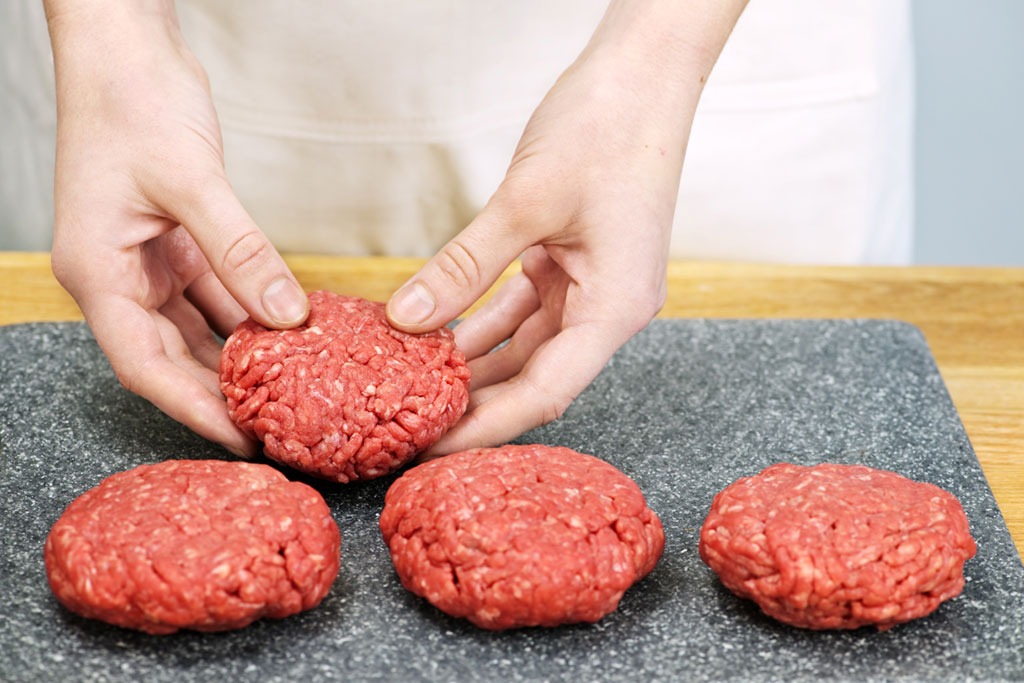
Carbon monoxide poisoning prevention has been drilled into us, which is why we all know not to leave our cars running in enclosed spaces. But while we've been taught to avoid the deadly fumes in our garages, not much has been said about the effects of ingesting it in our kitchens now that this gas has found its way into packaged meats. Carbon monoxide is used to bind with meat pigment and keep it looking red and fresh, and although no studies have shown it having an adverse effect yet, you can't blame us for being a little worried anyway.
Bacteria

You've heard the saying: you are what you eat. So what happens if you're eating animals that have been contaminated with E. coli, listeria, or other bacterias? The US Department of Agriculture reported that 70 percent of food poisoning can be linked to this. And to make matters worse, a study in Nature shows that a substance found in meats and milk can leave consumers more susceptible to E. coli infections. Sounds like a lose-lose situation to us.
Pesticides

Unless you're going organic, you're leaving yourself wide open to pesticides every time you walk out of the grocery store with a cut of beef. These chemicals are sprayed on crops that are ingested by animals and, in turn, ingested by us. Not only did a meta-analysis in PLOS ONE associate pesticides with an increased type 2 diabetes risk, but a Canadian study found that they also contain organochlorines that can slow metabolism and make losing weight more difficult. As if it wasn't already hard enough.
On the Grill
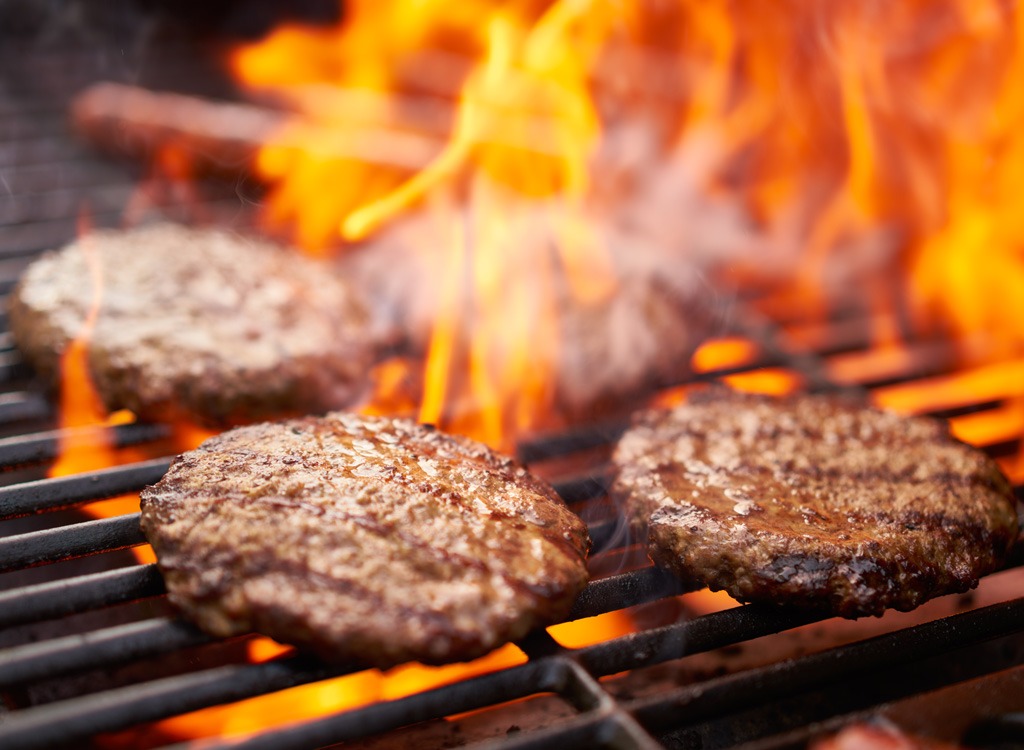
It's that time of year for backyard summer barbecues, but try not to go overboard. If you don't limit how often you're slapping patties onto the grill, you may wind up with more than what you asked for between those hamburger buns.
Polycyclic Aromatic Hydrocarbons
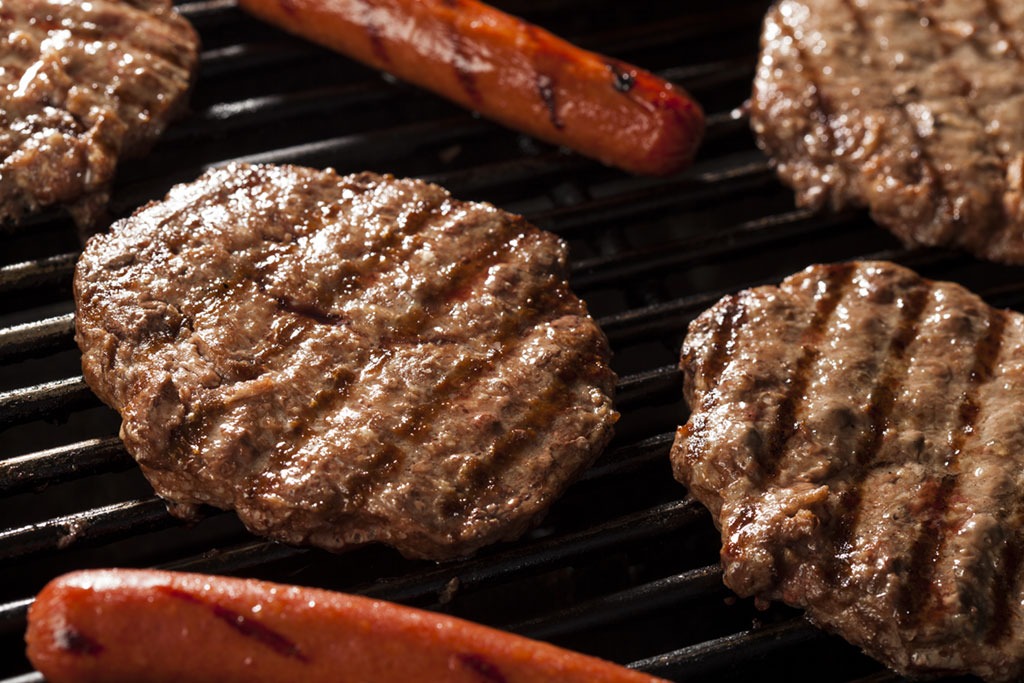
If you thought the fat in your burger would only affect your waistline, think again. Turns out, it could also be upping your cancer risk. When fat burns on the grill, it becomes a polycyclic aromatic hydrocarbon. One of these PCAs, benzopyrene, can be found in more than just grilled meat. It's also labeled as one of the prime carcinogens in cigarette smoke.
Glycotoxins
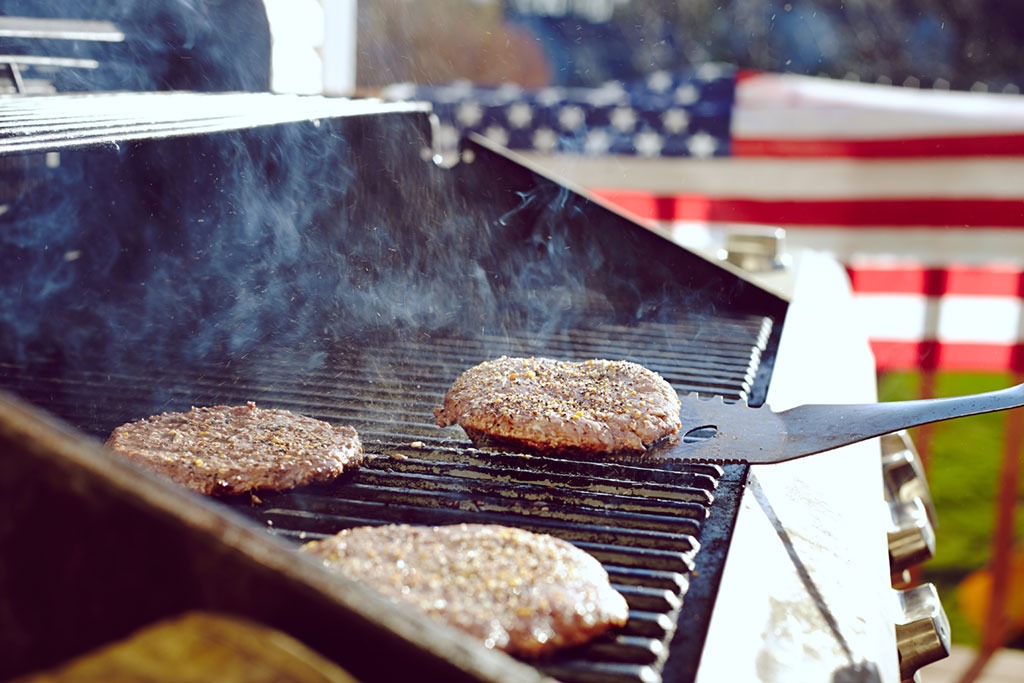
Cooking at high temperatures can boost the presence of glycotoxins in food, according to researchers at Mount Sinai Medical. These chemicals, which are associated with diabetes, heart disease, and inflammation in general, are more commonly found in meat thanks to its high levels of fat and protein. Doesn't sound very diet-friendly to us.
Heterocyclic Amines
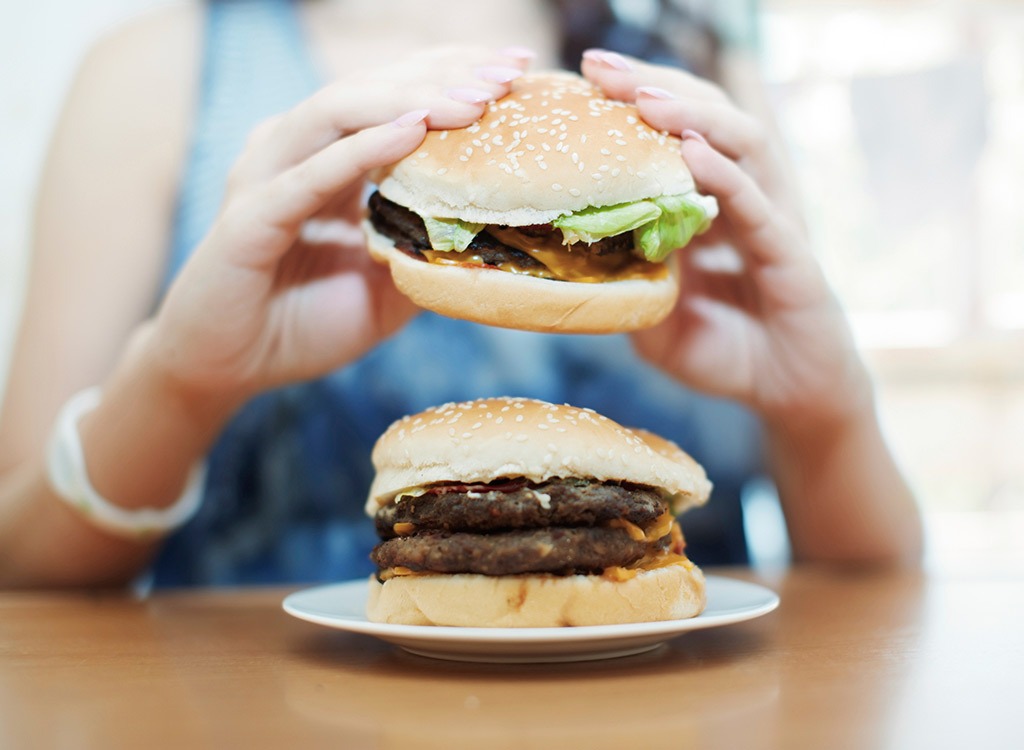
Heterocyclic amines only make an appearance when you're flipping burgers at temperatures over 300 degrees. Too bad that only happens every time you fire up the grill because a Carcinogenesis study showed that rodents ingesting these chemicals developed breast and colon tumors, as well as leukemia. Fortunately, the rats in this experiment were given abnormally high doses, so you'll be fine as long as you grill in moderation and read up on How To Grill Burgers Perfectly.








